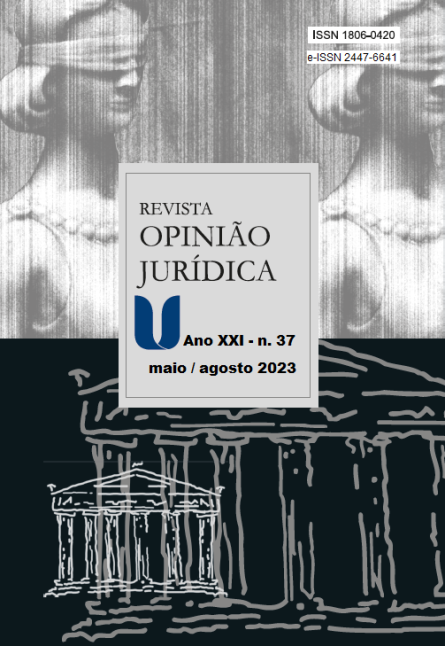THE CENTRALITY OF ETHICAL-ANTHROPOLOGICAL FOUNDATIONS IN THE CASE OF ABORTION: A DEFENSE OF REALISTIC PERSONALISM
DOI:
https://doi.org/10.12662/2447-6641oj.v21i37.p306-339.2023Keywords:
abortion, ethical-anthropological foundations, realistic personalism, Thomas Aquinas, natural law.Abstract
Objective: This article deals with the centrality of ethical-anthropological foundations in the case of abortion. Specifically, its aim is (1) to expose, descriptively, the three pro-abortion perspectives that stand out today based on different ethical‑anthropological foundations: the functionalist pro-abortion perspective, the libertarian pro-abortion perspective and the relational pro-abortion perspective; (2) to expose the misconceptions that underlies the ethical‑anthropological foundations of such perspectives; and (3) to demonstrate that the very exposition of the fundamental mistakes of the most famous contemporary pro‑abortion perspectives is supported by a specific ethical‑anthropological foundation called realistic personalism, according to which each and every human being is a type of being marked by an intrinsic dignity from his biological origin until his death, and, therefore, holder of duties and rights that precedes state positivization.
Method: Theoretical and reflective approach according to authorized and updated bibliography. In addition to paying attention to current embryological and genetic data that point to conception as the original biological moment of a new human being, it uses the lessons of Thomas Aquinas and his contemporary interpreters, with emphasis on those that constitute the New School of Natural Law.
Results: The main current pro-abortion perspectives emphasize a single aspect of the person, reducing the other aspects to the one that is emphasized. On the contrary, realistic personalism proposes an integral vision of man's personality, declaring it ontologically, axiologically, biologically and legally without denying the possibility of knowing and observing humanity from inexhaustible angles. In the context of abortion, realistic personalism, by rational demand, denounces its common mistake, understanding that the abortive practice is usually a direct affront to the absolute moral right that the unborn child – a worthy human person – has not to be killed by someone else since the moment he is conceived.
Contribuitions: This article contains preliminary notes, however technical. Its contribuition goes back to the necessary advancement of studies attentive to self-evident ends or purposes (basic goods) that concern the personal fulfillment of human beings. More – due to gaps in the national literature at the philosophical-legal and bio-legal level, its contribution also goes back to the urgency of providing scholars with a holistic view of the ethical-anthropological foundations common today in the case of abortion. It should also be added that this article enables an in-depth study of the ethical-anthropological foundations exposed therein. It is understood, however, that the constitutive foundations of the functionalist, libertarian and relational pro-abortion perspectives are in line with a self-destructive mentality expressed, for example, in slavery, racism, the marginalization of women, contempt for the elderly and ridicule of human beings with disabilities.
Published
How to Cite
Issue
Section
License
CESSION OF COPYRIGHTS
The submission of articles to analysis for publication on Opinião Jurídica implies the author(s) transfers copyrights to Centro Universitário Christus – UNICHRISTUS for reproduction, publicizing, distribution, printing and publication, according to the Publication Norm 414R, Opin. Jur., Fortaleza, year 12, n. 16, p.1-414, Jan./Dec. 2014, costs to be bore by UNICHRISTUS, in whatever format or means that may or shall exist, in accordance to articles 49 and following of Federal Law 9.610/98.
1. In ceding copyrights, the author(s) agrees to do so in exclusivity, free of charge and for the totality of the work.
2. UNICHRISTUS may make the work, in its entirety or in parts, available for scholarly purposes, without altering its contents, except for small corrections that are deemed necessary.
3. The cession of copyrights is valid in all countries and for versions of the material in its original language or translated into a foreign language.
RESPONSIBILITY FOR THE CONTENT
By submitting an article, the author(s) declare to have sole responsibility for the content of the piece and is(are), therefore, responsible for any judicial or extrajudicial measures referring to it.
1. In case of joint authorship, all authors are considered collectively responsible, except when proved otherwise.



















